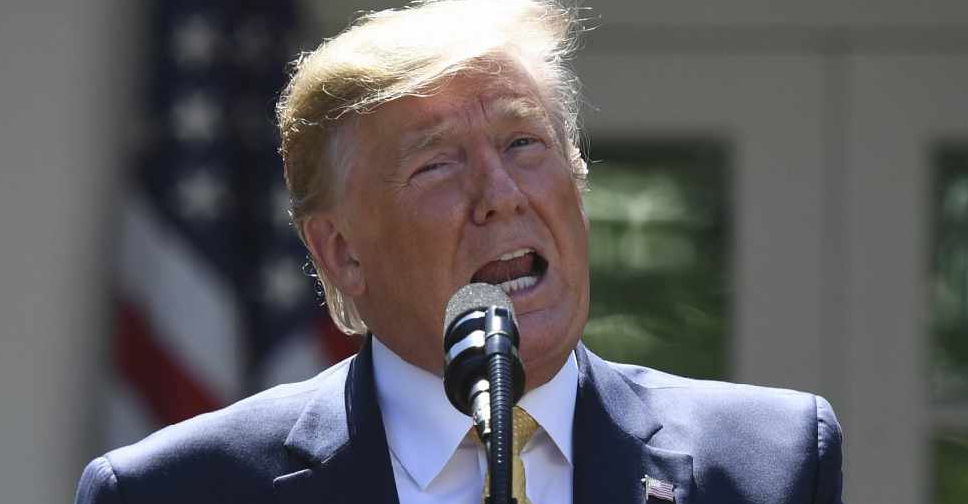
US President Donald Trump has threatened to not sign an $892 billion coronavirus relief bill, saying it should be amended to increase the amount in the stimulus checks.
US government operations are being funded on a temporary basis through December 28, waiting for the $1.4 trillion in federal spending for fiscal 2021 that is also part of the bill.
Failure to either pass another stopgap bill or override a possible Trump veto of the legislation could result in a partial government shutdown. The threat by the outgoing Republican president, who has less than a month left in office, throws into turmoil a bipartisan effort in Congress to provide help for people whose lives have been upended by the pandemic.
"The bill they are now planning to send back to my desk is much different than anticipated," Trump said in a video posted on Twitter. "It really is a disgrace."
The US House of Representatives and the Senate both passed the legislation overwhelmingly on Monday night.
Trump said he wants Congress to increase the amount in the stimulus checks to $2,000 for individuals or $4,000 for couples, instead of the "ridiculously low" $600 for individuals that's in the bill.
He also complained about money provided for foreign countries, the Smithsonian Institution and fish breeding, among other spending that is in the part of the legislation to fund the US government.
"I'm also asking Congress to immediately get rid of the wasteful and unnecessary items from this legislation, and to send me a suitable bill, or else the next administration will have to deliver a COVID relief package. And maybe that administration will be me," said Trump, who has continued to push baseless claims that he won re-election in November.
Trump, who will leave office on January 20 when President-elect Joe Biden is sworn in, did not use the word "veto" in his statement.
The 92-6 vote in the Senate and the 359-53 vote in the House both are well over the two-thirds majority needed to override a presidential veto, though some Republicans might balk at overriding a veto if Trump used that power.
A bill can be amended if congressional leadership wants to do so. If they don't, Trump's choices are to sign the bill into law, veto it, or do nothing and let it become law.
If the bill is amended, doing so by December 28 could be very difficult. It took months for the parties to agree to the thousands of elements in not only the coronavirus aid part, but the $1.4 trillion agreement to fund much of the US government.
Even if leadership wants to amend the bill, it still would have to be voted upon by the full House and Senate. Also, many Republicans might balk at the $2,000 direct payments because that would boost the cost of the bill to well over $1 trillion.
Two years ago, a record-long, 35-day government shutdown was sparked when Congress sent Trump a government spending bill it thought he would support, only to see him reject it over what he said was insufficient funding for building his vaunted U.S.-Mexico border wall.
Trump also said a two-year tax break for corporate meal expenses was "not enough" to help struggling restaurants.
The White House did not signal any objections to the legislation before it passed and gave every expectation that Trump would sign it. Treasury Secretary Steven Mnuchin was involved in the negotiations over the bill.




 Trump fires National Security Agency director
Trump fires National Security Agency director
 Israel steps up Syria strikes, says Turkey aims for 'protectorate'
Israel steps up Syria strikes, says Turkey aims for 'protectorate'
 US sending Israel 20,000 assault rifles that Biden delayed
US sending Israel 20,000 assault rifles that Biden delayed
 Israel says it killed a Hamas commander in Lebanon
Israel says it killed a Hamas commander in Lebanon



